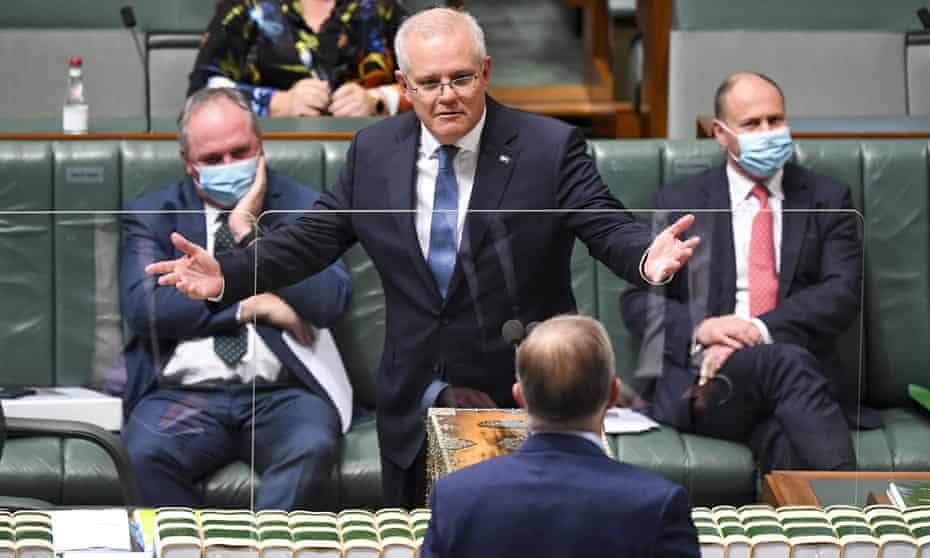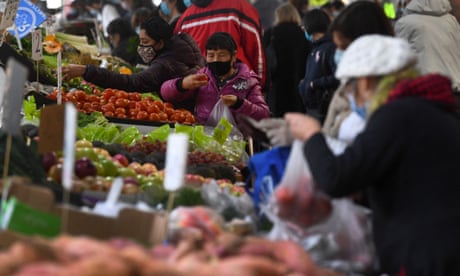Extract from The Guardian

For a master of political spin, our Prime Marketer should be entering the upcoming election cycle with a significant advantage: the enduring mythology that conservatives are better economic managers.
Right now, you can see him grasping for a fight on the economy like a drowning man with a manic flurry of real-time iterative message testing from “can-do capitalism” to “cost of living”, anything to shift the political contest from the here and now to a hypothetical future under a reckless, profligate Labor government.

This brand advantage has been a constant of contests between political parties of the right and left around the globe, encapsulated by veteran Washington pollster Vic Fingerhut’s insight from more than 50 years of polling that right-of-centre parties win the narrow “better economic manager” contest regardless of actual performance.
The Coalition has been adroit at winning and holding on to power running on the economy: interest rates (2004), foreign debt (2013) and a confected scare on taxes (2019) just three examples of where the election has been run and won on their political home turf.
But findings in this week’s Guardian essential report suggest that no matter how hard he rubs it, the PM is struggling to summon the economic genie out of the bottle this time around.
These are remarkable numbers, the cruising control on economic management is typically a 10-15% lead for conservatives, with the numbers equalising when people are inserted into the formulation.
This is the critical second arm of what I call the “Fingerhut effect”. Left-of-centre parties do best when economics is anchored to the kitchen table; think Labor’s last election win in 2007 when the economic debate was about workers’ rights.
Even more alarming for the PM will be the degree to which his attempts to tie Labor to higher household prices is also falling flat. This has been portrayed by some commentators as a master stroke, echoing John Howard’s demolition of Latham Labor by campaigning on trust keeping interest rates low.
But unlike 2004, voters are already reporting lived experience of rising petrol costs of fuel, energy, housing and groceries, meaning the straw man that Labor will push prices even higher is just not flying. On these numbers, the PM can’t even convince his own voting base that his government is better credentialed to manage household expenses.
Which leaves the PM with his tenuous metanarrative, a celebration of “can-do capitalism” set up in contrast with “don’t-do government”. While he is banking on voter fatigue with public health restrictions driving an embrace of laissez-faire economics, again the facts are getting in the way of the slogan.
First, people may be fatigued with lockdown restrictions, but they are still supportive of their state governments and, pointedly, significantly more approving of state administrations than the federal government. In any federal-state showdown, the PM is holding a losing hand.
More profoundly though they see an enhanced, rather than truncated role for government as Australia works through how to rebuild the economy, with nearly two third of voters wanting more, not less, from their government.
Again, the split on voter response should be a caution for the PM, with even his own voters rejecting the idea that bonsai government will meet the challenges of the times.
In setting up a fight between “can-do” capitalism and “don’t-do” government, the PM has not only presented a false dichotomy, he’s opened the way for Labor to present an alternate approach to leadership drawing on its own band strength and storied history of “managing the economy in the interests of everyday Australians”.
Whitlam modernised the political economy of Australia, securing equal pay for women, decentralising government to the regions, recognising China. The Hawke-Keating government’s reforms did not just increase national wealth, but delivered Medicare and superannuation, long-term structural changes that made the nation wealthier and more equitable. And Rudd-Gillard used a moment of global financial crisis to invest behind energy efficiency and affordable housing, while building the market mechanism Australia still desperately needs to drive the energy transformation we have to have.
In between these Labor governments there have been periods of stasis. Fraser presided over a cycle of inflation and industrial confrontation. Howard increased the tax base for working people with the GST and then sprayed the proceeds into tax breaks for those who had already accumulated capital. After three terms of Abbott-Turnbull-Morrison rule, the only real commitment has been to entrench the status quo.
Labor’s political opportunity is to offer something beyond economic cliches. The building blocks of this plan is taking shape with policies already announced – expanded childcare and early learning, recharging Tafe, addressing the flatlining of wages, and a more self-reliant manufacturing policy, with local industries in everything from vaccines to batteries to electric vehicles.
We know from these numbers that people want more government not less: to start acting like architects and not plumbers, building back stronger by growing our own people, supporting more secure work and partnering with business to create local industries.
People, jobs, industries. This is an economic agenda that would put Australians at the centre of their economic future not just as numbers in a data set. Labor has a once-in-a-generation chance to rebuild an economy that works for its citizens.
No comments:
Post a Comment